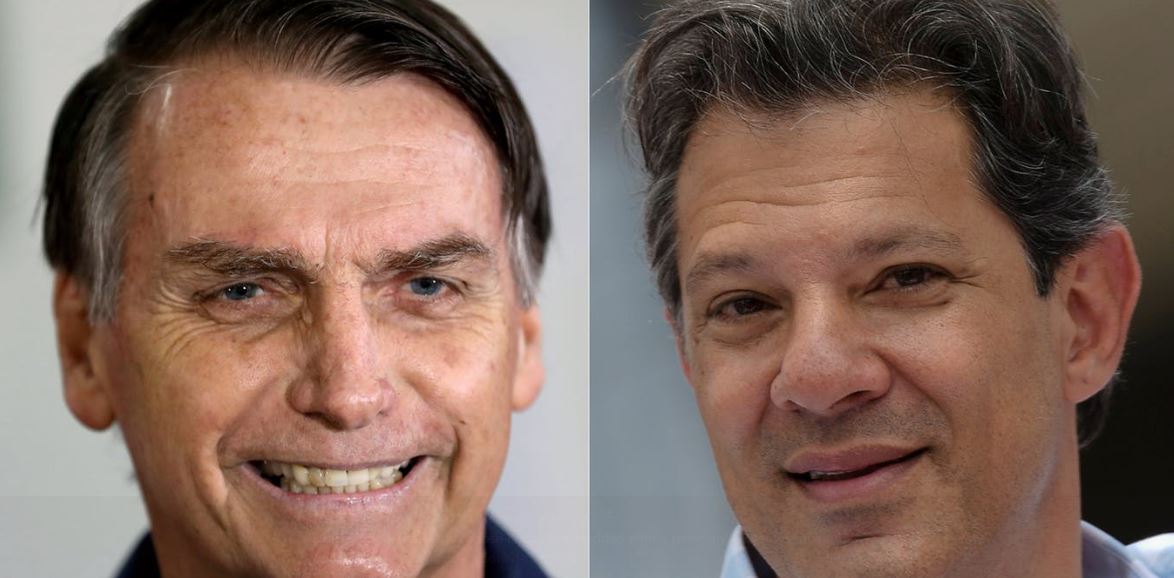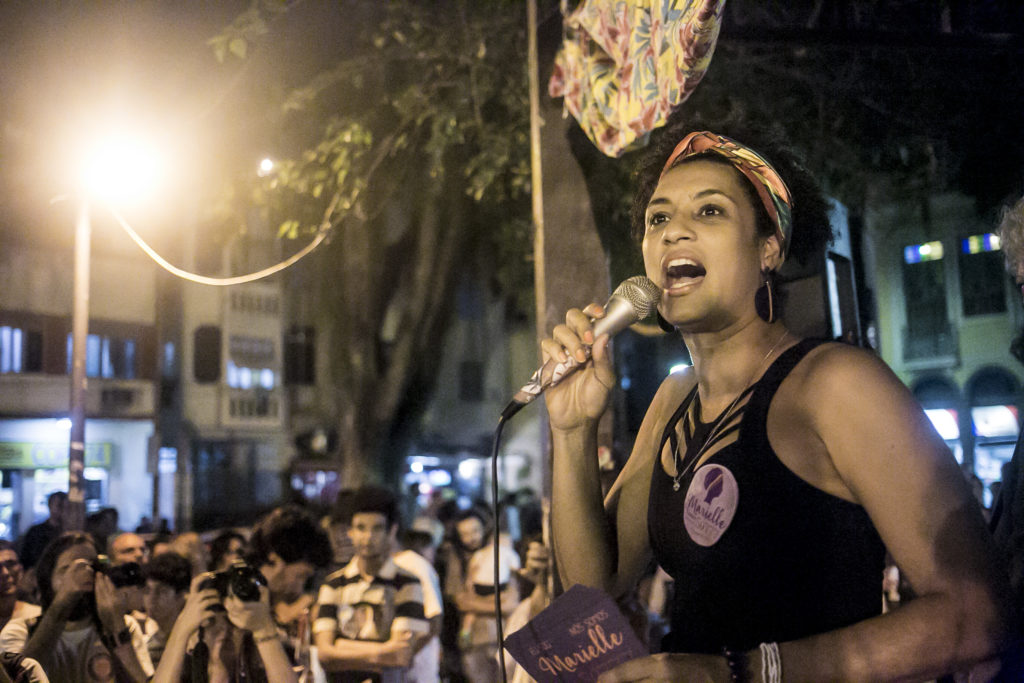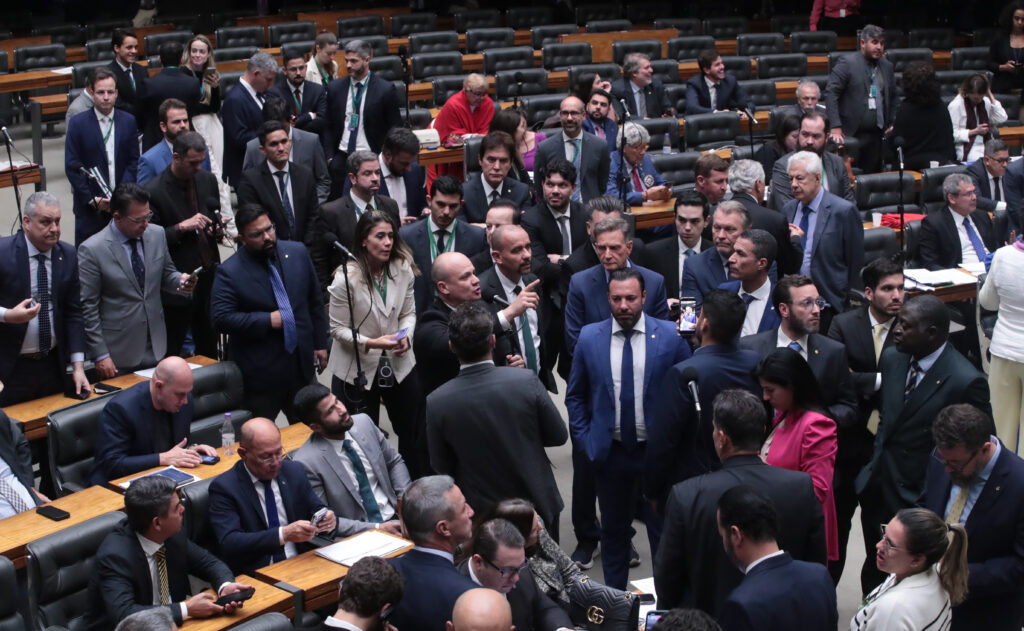With 99.9% of votes tallied, the results of yesterday’s first round vote saw far-right PSL candidate Jair Bolsonaro win a majority with 46% of voter support. In second place was his opponent Fernando Haddad, representing the leftist PT, who won 29% of the vote.
Geographically, support for Haddad was registered mostly in the northeast of Brazil, with the rest of the country largely voting for Bolsonaro.
Other candidates registered relatively little voter support in comparison. In third place was PDT’s left-wing Ciro Gomes, with 12.5%, followed by PSDB centrist Geraldo Alckmin, who registered 5%. Other candidates João Amoêdo, Cabo Daciolo, Henrique Meirelles, Marina Silva, Alvaro Dias, Guilherme Boulos, Vera, Eymael and João Goulart Filho all registered less than 5% of all votes.
As exit polls were being released and votes counted, for a while a first-round victory for Bolsonaro seemed entirely possible. With just over half of the votes counted, 49% were registered in Bolsonaro’s favour, placing him narrowly close to the 50% majority he needed to secure a win and therefore bypass a second vote. However, as vote counting continued, Bolsonaro’s popularity slipped and Haddad’s rose, with the final result seeing both candidates through to the next round.
It was a tense day for Brazilian voters, with Bolsonaro supporters gathered outside his Rio de Janeiro home throughout the day showing their support and singing the Brazilian national anthem in their country’s football shirts.
Bolsonaro supporters singing Brazil’s national anthem outside his house. pic.twitter.com/zgQlxph8PL
— Dom Phillips (@domphillips) October 7, 2018
Some even went to extreme levels to show their support for the candidate, whose stance on security and weapon possession has gained him the support of many who are fed up with levels of crime and violence in Brazil. Videos such as the below, showing citizens using firearms to cast their votes, were posted on social media.
Olha esse vídeo , o “eleitor” votando no Bolsonaro usando arma de fogo. pic.twitter.com/yWUVSYPxHV
— Erlan Bastos (@erlan_bastos) October 7, 2018
For their part, Bolsonaro’s opposition went to vote in their #EleNao t-shirts, maintaining the anger and momentum from last weekend’s protests.
No dia da votação, as mulheres saíram nas ruas de São Paulo vestidas de #EleNão, contra o ódio, o fascismo e pela vida das mulheres. Nossa resposta virá nas urnas!
Fotos: Adriana Valentin / Mídia NINJA pic.twitter.com/Du369U6IFe
— Mídia NINJA (@MidiaNINJA) October 7, 2018
Speaking after the results of his victory were released, having opted to do so via a Facebook Live transmission rather than the traditional press conference format, Bolsonaro pledged to re-unite Brazil.
“We have everything going for us to be a great nation, to unite our people, to put the broken pieces we were left with by the previous left-wing government back together,” he said.
Having previously accused the PT of fraud, Bolsonaro then used his Twitter account to hint to voters that the last leg of his showdown against the country’s Workers’ Party had the potential to get ugly, referencing Lula’s imprisonment.
“Our country is big and prosperous,” he tweeted. “It is not a criminal faction to be led from behind bars.”
For his part, runner-up Haddad gave a press conference from a São Paulo hotel sounding positive, but at the same time aware of the challenge ahead of him to close the current gap.
“We are going to tackle this debate in the democratic field with one sole weapon: argument,” he outlined. “We want to unite Brazil’s social democrats, a large project that works tirelessly to seek social justice.”
Indeed, as UFF political sciences professor Carlos Serra warned in a previous interview with Brazil Reports, deconstructing the anti-PT sentiment will be one of Haddad’s biggest challenges, as well as simultaneously maintaining Lula’s image in order to secure the support of those who would have voted for him had he not been in prison.
Speaking to The Guardian, America’s Quarterly editor-in-chief Brian Winter agrees, speculating that the challenge may prove too difficult for Haddad, who crucially begun campaigning later than the rest. “The path for Haddad to close that gap looks almost impossible,” saind Winter. In fact, 25-year-old Rio de Janeiro-born international relations student Flávia Aguiar believes that PDT candidate Ciro Gomes would have been better equipped to face the challenge.
It has already been proven that opposition to Bolsonaro is not the best way to go about making the candidate less popular. From the extremities of the assassination attempt that occurred during Bolsonaro’s presidential campaign in Minas Gerais, to the large-scale national #NotHim demonstrations, both have served to strengthen the support system for the far-right candidate, whose supporters are largely fearful of a socialist government.
As free publicity spots begin on national television, the following weeks will see the two rivals go head-to-head in a series of further televised debates and three weeks of intense campaigning before the second electoral vote on October 28.










